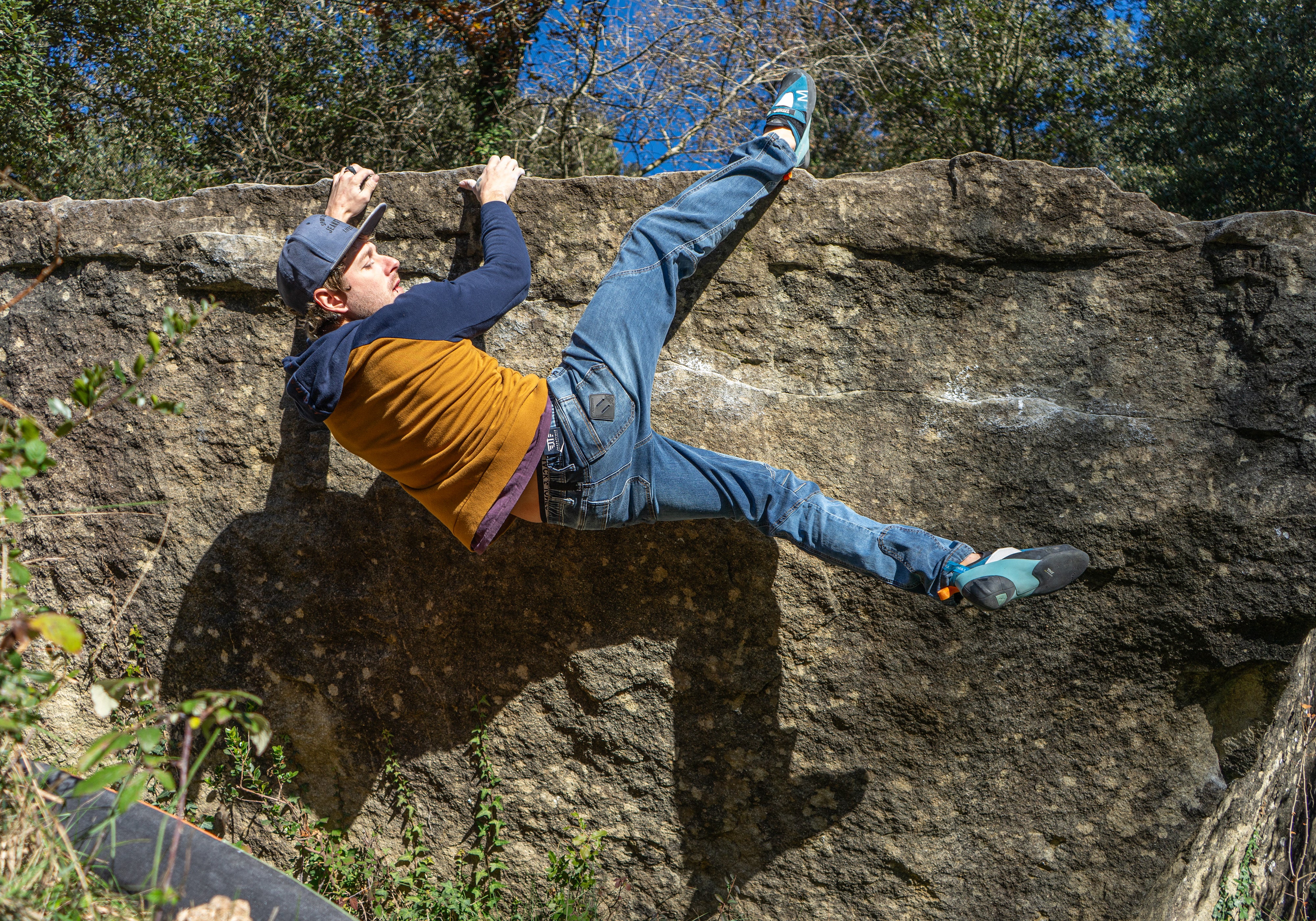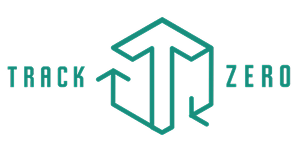Manifest
At Jeanstrack, we believe that enjoying nature also means taking care of it.
That's why, with the Track Zero program, we work every day to reduce our impact and move toward a more responsible future.
Track Zero is our commitment to sustainability. And under this commitment, we design garments with responsible materials, clean processes, and local production, all with the goal of reducing our carbon footprint.
Just as we leave no trace at the end of a route, we want our clothes to leave as little trace as possible.
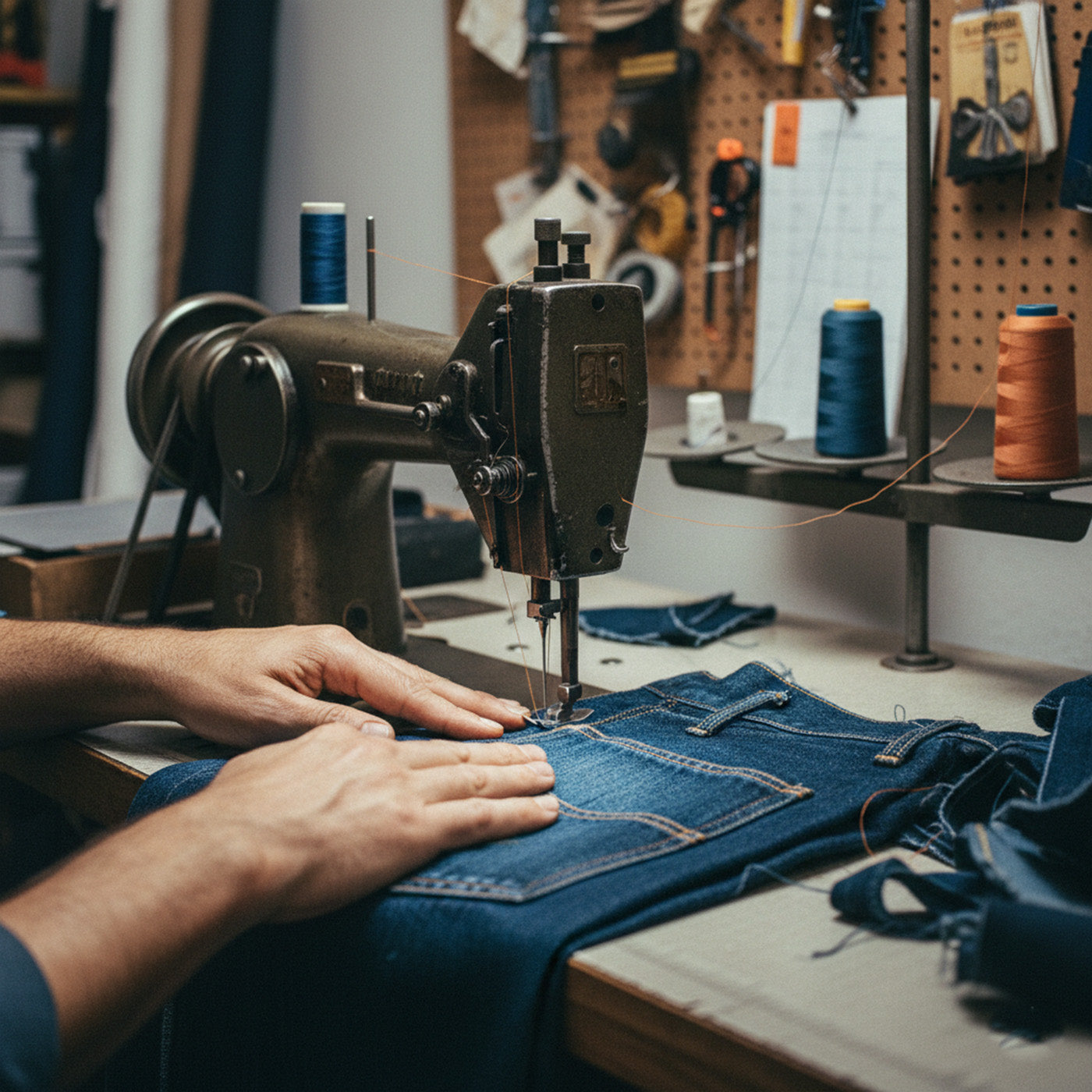
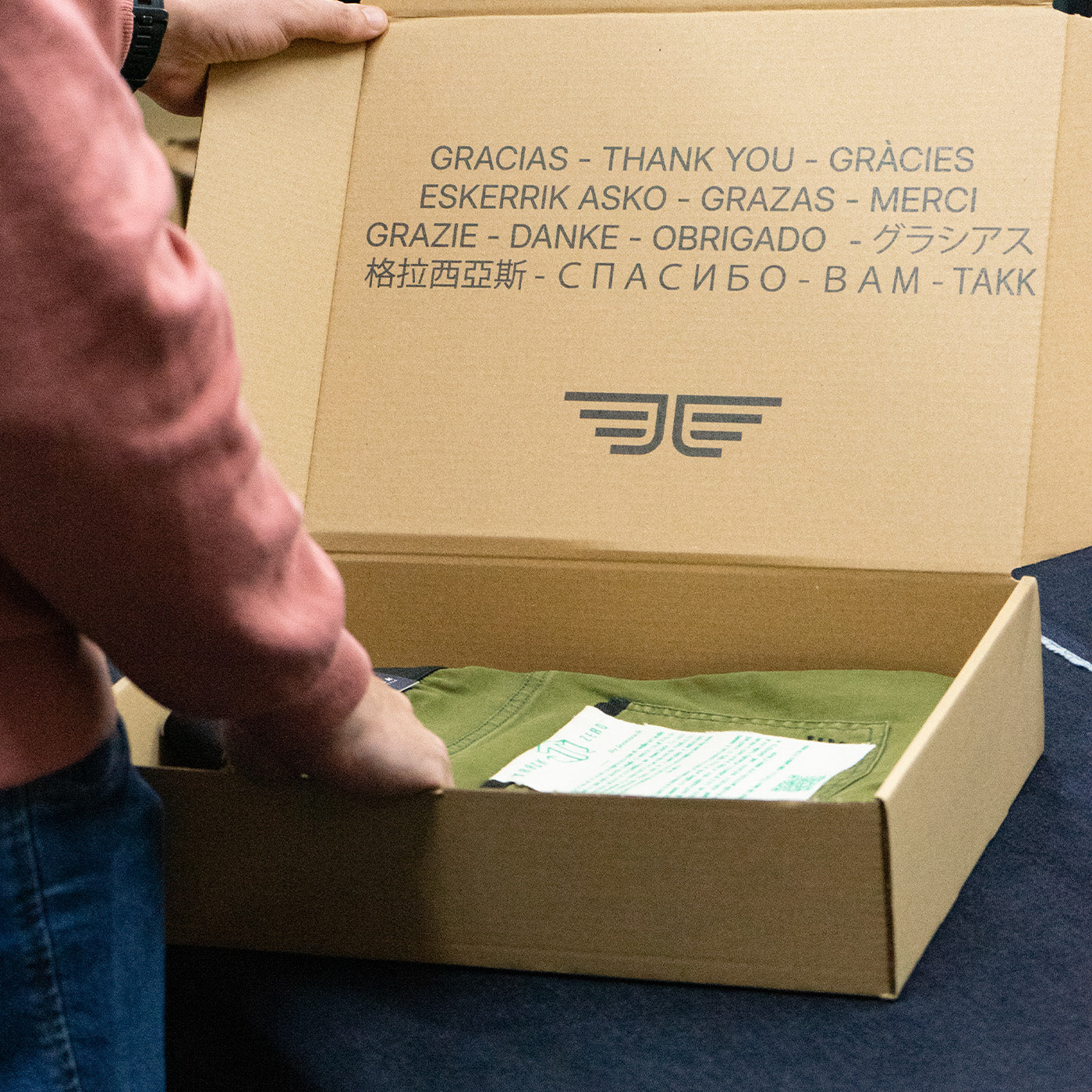
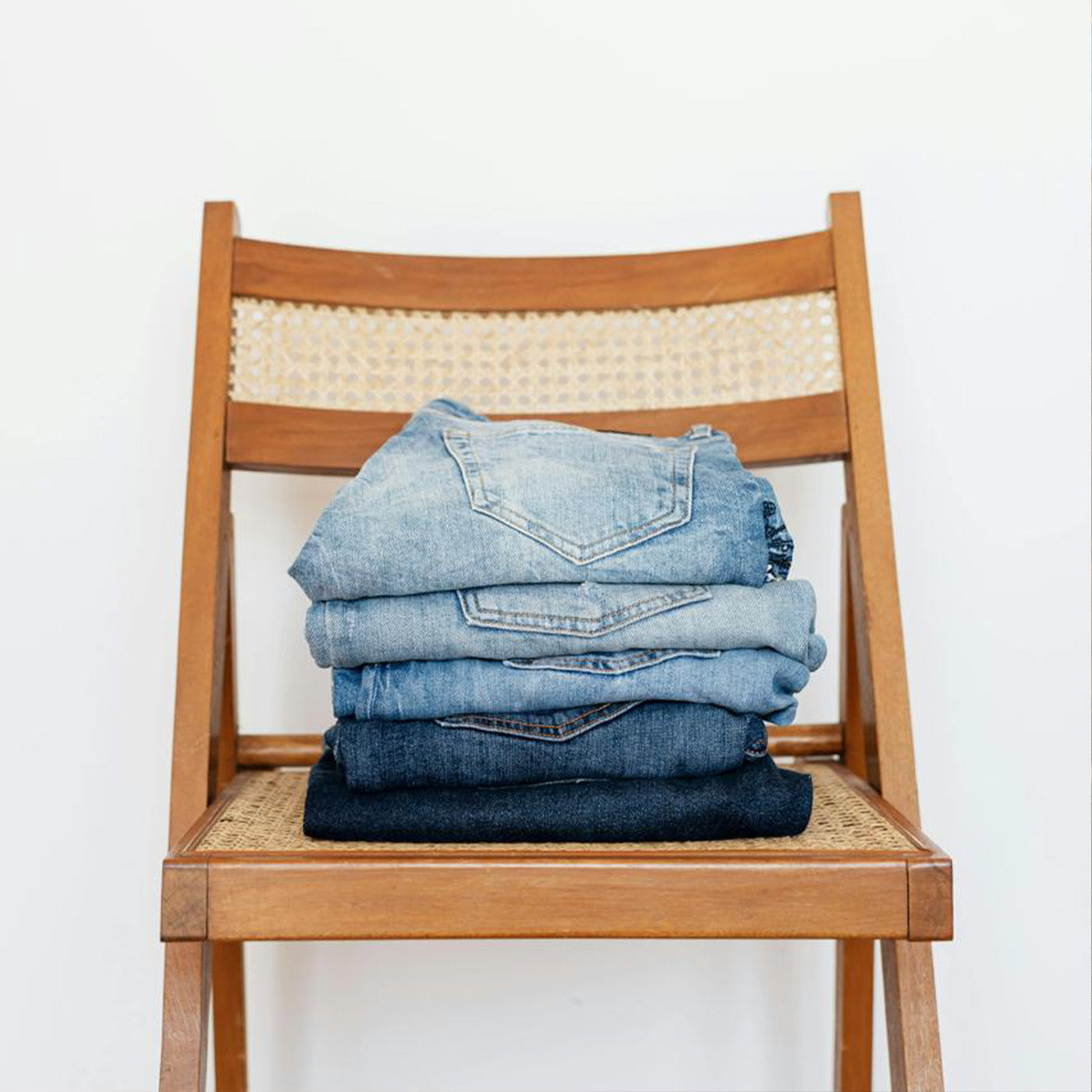
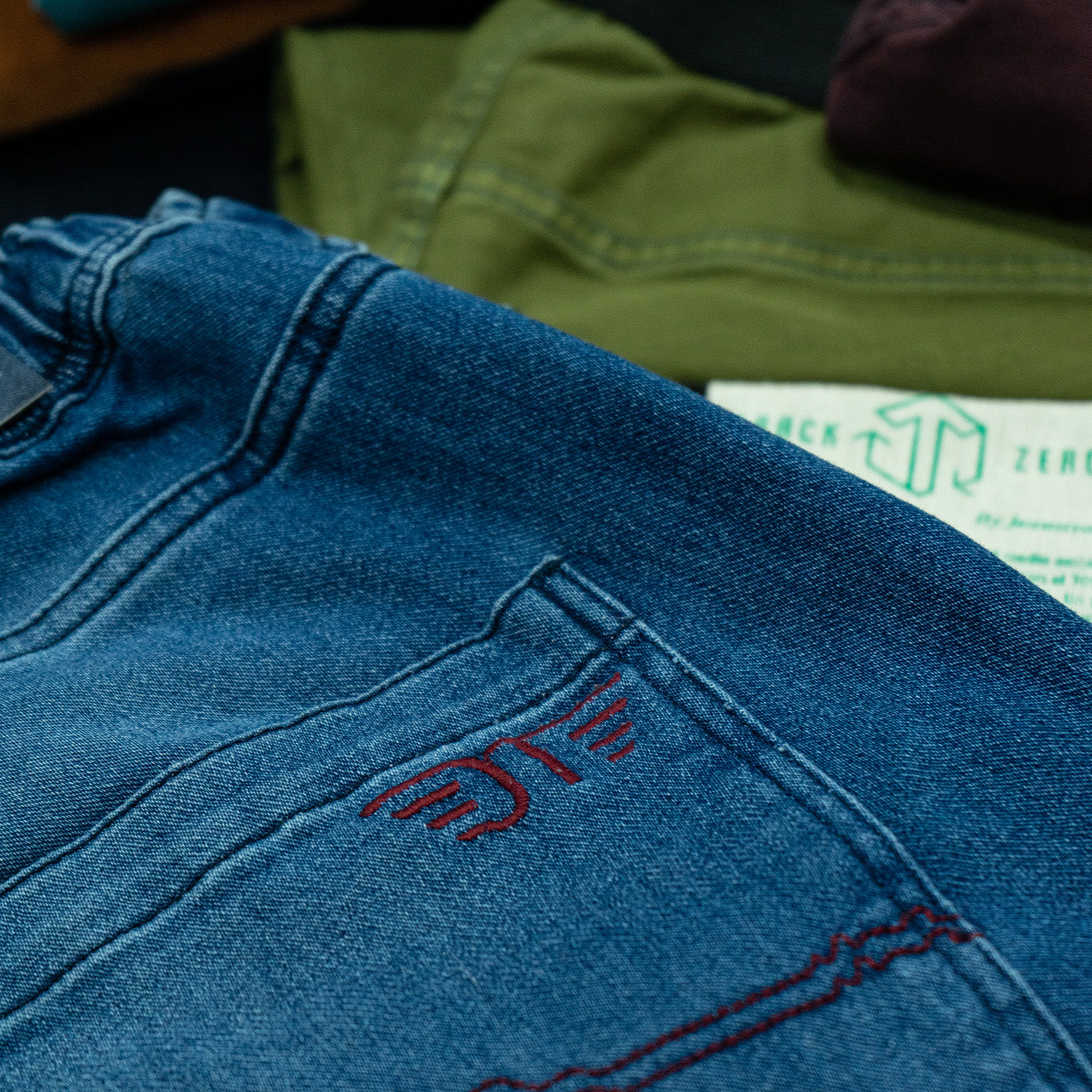
Innovation
Sustainability
Materials
HOW DO WE MEASURE SUSTAINABILITY AT JEANSTRACK?
We quantify 3 aspects: Materials, Processes and Carbon Footprint with a total of 100 points.
Materials
5 pts. OEKO–TEX®/BCI fabrics
20 pts . GOTS/GRS/REPREVE fabrics
5 pts . Eco-labels
5 pts . Eco-friendly zippers and buttons
10 pts . Eco-friendly packaging
45 points
Processes
10 pts . Renewable energy
5 pts . Laser
10 pts . Ozone / Nanobubbles
10 pts . Eco-friendly dyes and finishes
35 points
Carbon footprint
10 pts. Made in Europe
20 pts. Made in Spain
30 points
Track Zero ≥ 70 points
HOW ARE POINTS CALCULATED?
If the garment scores more than 70 points,
we classify it as very sustainable and
we give it the Track Zero label .
This refers to the materials used both to manufacture our garments and to deliver them to you. It includes fabrics, labeling, accessories such as zippers, buttons, or rivets, and the packaging we use to deliver them to you.
5 PTS. OEKO-TEX ® FABRICS – BCI .
These two certifications are the minimum acceptable for raw materials if you want a product to be sustainable. OEKO - TEX® certifies that textile chemicals are suitable for sustainable production and that they are ecologically safe for humans and environmentally friendly. BCI (Better Cotton Initiative) certifies the sustainability of the cotton used based on environmental and socioeconomic criteria. All our fabrics have these certifications.
20 PTS GOTS FABRICS – GRS – REPREVE .
These are internationally recognized certifications that certify that the fabrics used are "organic" (GOTS, OCS), "recycled" (GRS, RCS), or REPREVE, whose fibers come from recycled PET bottles . For us, this is the highest sustainability value in the materials category, and we are working to increase the use of materials with these certifications.
5 ECO LABEL POINTS .
If the labels, whether hanging or sewn into the garment itself, are sustainable because they use organic or recycled materials , we will apply these points.
5-POINT ZIPPERS – ECO BUTTONS .
The same criteria used in the previous point, but applied to the zippers and buttons used. We work with YKK, whose zippers are NATULON certified for heavy metal-free zippers made from recycled PET bottles .
10 ECO PACKAGING POINTS.
Another important point is packaging, as the rise in individualized shipping worldwide has increased the use of plastics that are so harmful to the environment. At Jeanstrack, we've eliminated plastics and use recycled cardboard made in Spain.
Industrial processes are a very important part of our product, and the textile industry is making great strides in terms of sustainability.
10 RENEWABLE ENERGY POINTS .
If the energy used in any of the production centers (garment workshop or laundry) is from renewable sources, if they have solar panels or use biomass for boilers , we will apply this score.
5 LASER POINTS.
Laser marking is a technique for achieving distressed and decorative effects on garment fabric. This technique replaces manual and chemical processes that are more polluting. Laser marking eliminates the use of chemicals such as potassium permanganate and reduces water and energy use in the process.
10 OZONE POINTS – NANO-BUBBLES.
Thanks to technology, there are two processes in the finishing of jeans that are essential for sustainability. The use of ozone eliminates the use of hypochlorite and reduces water consumption by 90% . Furthermore, the use of nanobubble technology in finishing processes reduces chemical and water consumption. These processes also reduce energy consumption by 79% compared to traditional processes.
10 PTS ECO DYES AND FINISHES.
The vast majority of our colored garments are treated in industrial washing/dyeing plants. The use of ecological and natural dyes is an important step toward sustainability. The same applies to technical finishes such as water repellency, which not only comply with current regulations but also aim to be biodegradable and as sustainable as possible (fluorocarbon-free).
Sustainability shouldn't just be measured by raw materials and how they've been processed. Transportation plays a very important role in this globalized world. Manufacturing in Europe, and more specifically in Spain, is not only a way to better control processes and create wealth in the market you operate in, but also helps reduce your carbon footprint.
10 PTS MADE IN EU.
For those products in which all production processes have been carried out within the European Union.
20 POINTS MADE IN SPAIN.
Garments made in Spain. Most of our production centers are less than 400 km from our logistics warehouse in Morella, which greatly reduces polluting emissions compared to most products from Asia or Africa.
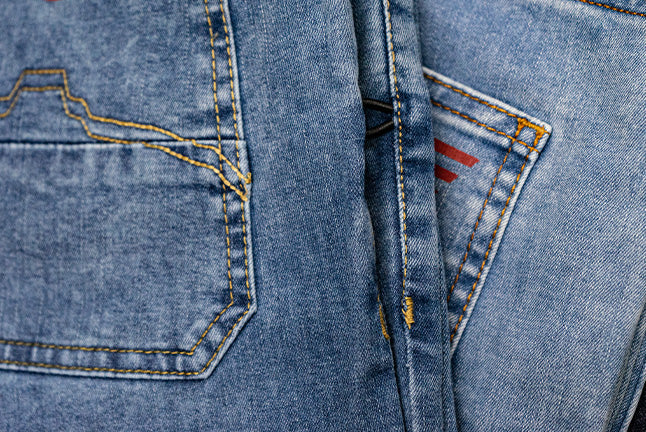
Transparency and commitment
When you buy a Track Zero product, you're also helping to protect the planet.
Jeanstrack products that do not carry this rating are not environmentally unfriendly: all of our products comply with one of our initiatives , scoring at least 50 of the 100 points we consider.
But Track Zero products highlight those garments that are highly sustainable .
Track Zero is more than a label. It's our way of uniting passion for adventure and respect for the planet.

